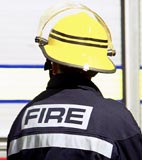 |
 |
 |


 Sticks and stonesFire man, fire woman or fire fighter? Calling each other names is natural, but do they lead to discrimination? Emma Moore from Sheffield University (herself a 'doctor') looks at the labels we give each other.
 Between us we speak over 300 languages. Find out more about some of these languages and take a stroll through our linguistic history. 
 |
Stop talking rubbish
Bored of the entire English language? Then why not make up your own. Nonsense words and phrases are easy to conjure up, if you stop concentrating for long enough... |
 |
 |
 |
Language change
'Teenager' and 'prioritise' are both borrowings from American English. Is English in the British Isles becoming more American? |
 |
 |
 |
Classroom talk
"Its not fair, boys get all the attention!" Classroom talk looks at language stereotypes, explains why VOLUME is no substitute for learning a language and recommends subtitles for our soaps. |
 |
 |
 |
Language ecology
Half of the world's 6500 languages will soon be extinct. Should we do anything to stop this? The solution is a bit different from helping pandas to breed... |
 |
 |
 |
Wash your mouth out!
Sticks and stones can break your bones - and words can be pretty hurtful too. Here's some background information on the linguistics of 'bad language'. Beware strong language. |
 |
 |
 |
Language and place
You can tell where we come from when we open our mouths. Here, Professor Peter Trudgill untangles the links between language and geography. |
 |
 |
 |
Received Pronunciation and BBC English
No longer are the clipped tones of the Home Service to be heard on the wireless, but the myth of 'BBC English' dies hard. Dr Catherine Sangster, from the BBC Pronunciation Unit, explains why it has proved so resilient. |
 |
 |
 |
Language and time
So how did we get where we are today? We've gone from 16th century trilingualism to 1970s RP mixed with Cockney. Professor David Crystal traces the history of the languages of the British Isles. |
 |
 |
 |
Accents and radio drama
Actor, co-writer and director of BBC Radio 4 comedy Street and Lane, about a pair of Yorkshire builders, discuss working with accents. |
 |
 |
 |
Politeness
Is being polite always well-meant? What's really in a 'sorry'? Why do women apologise more than men? |
 |
 |
 |
Language and age
The Queen's gone Cockney! Well, according to some news reports. Find out how our voices naturally change through our lives and the disgusting definition of 'tagnuts'... |
 |
 |
 |
When languages collide
What happens when different languages collide with each other? 'New' words like 'le camping' and 'cul-de-sac' are formed and, after prolonged contact, maybe even a pidgin or two... |
 |
 |
 |
Why should we study language?
Linguists solve crimes, champion the underdog and even help secure the future of humanity. Surprised? Learn more about the perceived 'dry' subject of linguistics... |
 |
 |
 |
Talking proper
Is there such a thing as 'ungrammatical'? How important are 'rules' in every day speech? |
 |
 |
 |
Accent-uate the positive
Just open your mouth and your accent can give away where you're from, even if you think you don't really have one... |
 |
 |
 |
The art of conversation
Always arguing? Sick of kids who, like, always say like and innit, innit? It's not what you say, it's the way you say it. |
 |
 |
 |
Multilingualism
Over 350 different languages are spoken in the UK today, so there has never been a better time to speak another language. |
 |
 |
 |
In the beginning...
Was the first language Chinese or Hebrew, did it evolve from gestures and pointing, or was it even a secret code invented by priests and magicians?! |
 |
 |
|
 |
 |
What do you think about your local accent?
|
 |
 |
Foreign Language Syndrome occurs when people with brain injuries lose the ability to talk in their native accent. After a stroke, George Reynolds developed an Italian accent.
|
 |
|
 |
-->
 |
In November 2004, the BBC commissioned a poll to find out how people feel about accents and languages across the British Isles. 5000 people took part in the online poll. Here's what we found... |
 |
|
 |
|
| |
|

